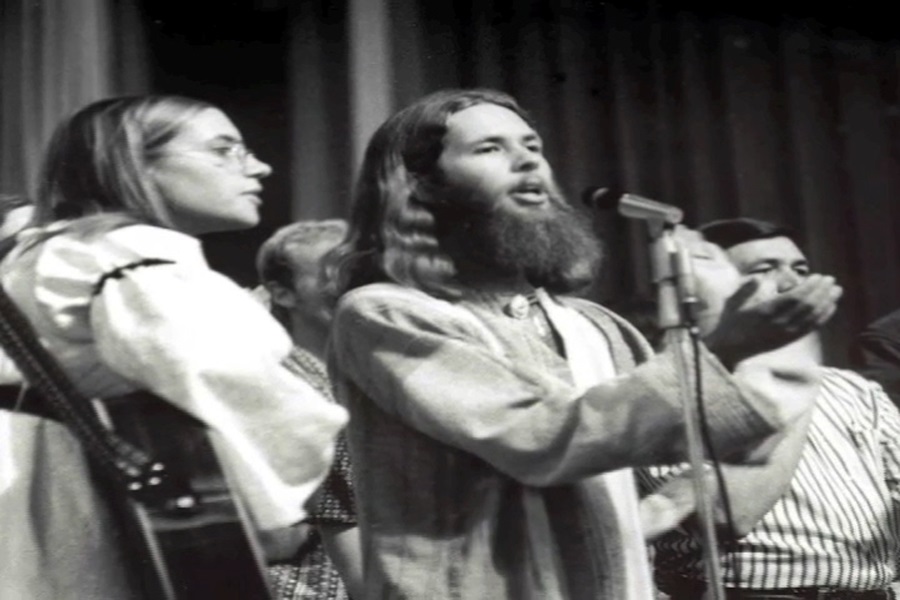
The delicate balance between ministry and madness—explored in other Top 100 films such as Ordet and The Apostle—takes a real life turn in Frisbee: The Life and Death of a Hippie Preacher, an informative and revealing documentary that explores the life of a struggling evangelist trying to follow and live out God’s call.
Lonnie Frisbee, seeking euphoria in LSD, was tripping with friends in a California canyon painting pictures of Jesus on the rock walls when he claims he met Jesus and his life was changed forever. Delusional or not, he responded to the vision like a modern-day John the Baptist, becoming a fiery-eyed prophet willing to baptize hundreds and minister to thousands off the Pacific coast. Indeed, he became one of the more well-known prophets of the counter-culture Jesus movement of that time.
Two of the fastest growing churches of the last half-century were launched as a result of his anointed and zealous evangelism. Sadly, Frisbee himself isn’t a part of their story. Having started the churches with a message for the lost, his own lostness and the moralizing of others wrote him out of church history.
Frisbee died of AIDS in 1987. Among the first to die from the epidemic, he continually struggled with homosexuality even as he claimed that it was sin.
The documentary is mind-boggling: it combines a “sin-in-the-ministry” perspective with an evangelical mode—a reminder that behind today’s groomed and well-fed preachers lie roots in prophetic figures like John the Baptist, Isaiah, and Hosea. These were figures who stood against conventional religion, often appearing like lunatics but sacrificing for a cause they saw as greater than themselves.
Frisbee didn’t hide his sin so much as work alongside it. He didn’t want it stopping him from what he felt was the ultimate mission.
This is his story—a story almost forgotten, which some seem to wish to forget. Director David Di Sabatino captures this history in narrative form—with great pictures of Lonnie and his early life and the beginnings of the Jesus movement—and in interviews with as many as he could find who were actually a part of the story. Interviews with Chuck Girard, Chuck Smith, Jr., Troy Perry, Mel White, and Connie, Frisbee’s wife, punctuate the history by offering tales that are their own. Their perspectives often differ in the details, but a similar thread always prevails: there once was a man of fire and love and compassion, who pleaded with thousands that Jesus was the way. — Stef Loy (2010)
Arts & Faith Lists: